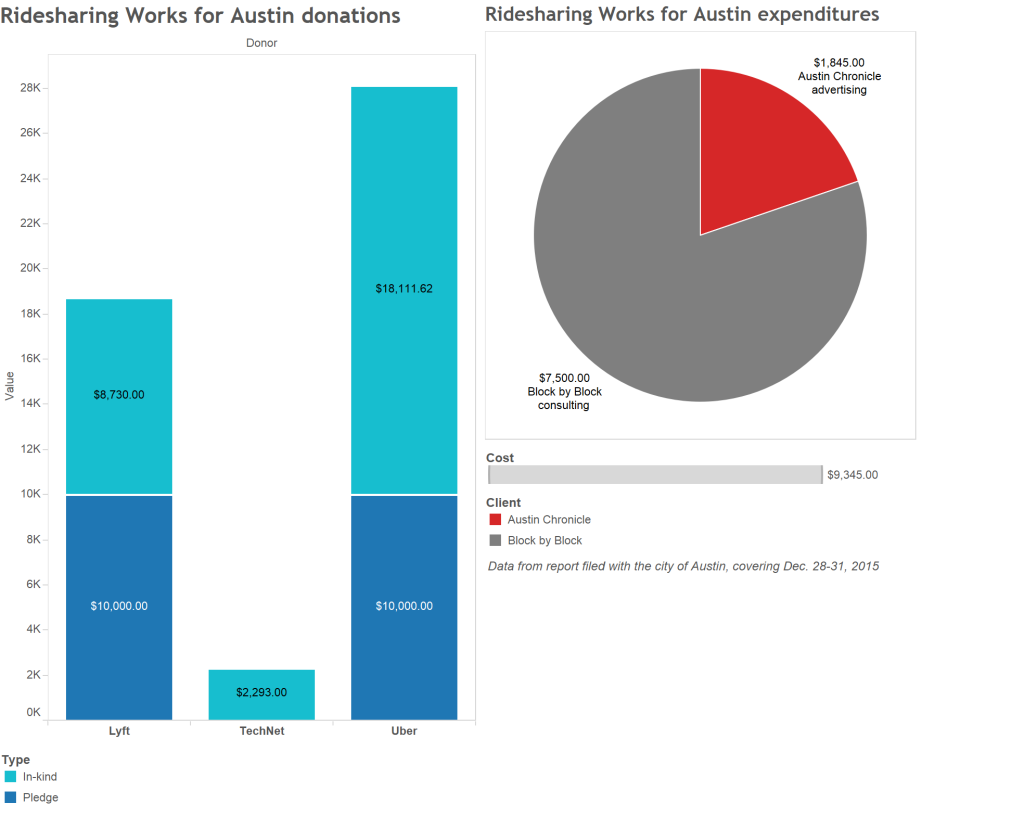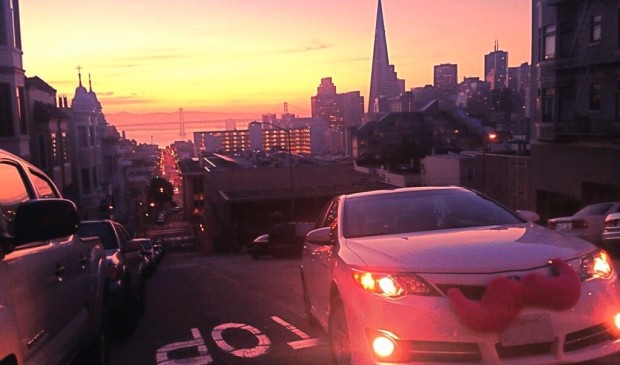Little clarity in TNC debate
Thursday, January 21, 2016 by
Eva Ruth Moravec Where there was once a clear path for City Council to revise rules for transportation network companies, there is now a plethora of possibilities.
Council voted last month to require fingerprinting background checks of TNC drivers, and it is set to lay out a system of incentives and disincentives for the companies at its next meeting, Jan. 28. This week, Mayor Steve Adler dribbled out details of a new idea he hopes will end the gridlock over fingerprinting, which Uber and Lyft oppose, saying the process is redundant to their own third-party checks and discourages drivers from working for the companies.
And then there’s the petition asking Council to disregard the new ordinance in favor of another new one that doesn’t require fingerprinting. The petition has gotten more than 65,000 signatures – 23,000 of which were delivered in boxes to City Hall for verification this week.
Once the signatures are validated, Council must within 10 days either adopt the new ordinance, which was proposed by political action committee Ridesharing Works for Austin, or call for a city-wide vote on the matter.
“If we were able to certify and verify this petition and have enough days to order an election by Feb. 19, it could go on the ballot May 7,” said city spokesman Bryce Bencivengo.
If an election occurs in May, Travis County Clerk Dana DeBeauvoir said it will cost the city at least $500,000. Some school districts might have elections in May, too, she said, and would share in the $800,000 overall cost of an election.
But no other group may contribute to the cost, DeBeauvoir said, adding, “If the citizens call for an election, their own government pays for it.”
PAC Treasurer Caroline Joiner, of TechNet, said it’s the city’s choice whether to incur the cost of an election.
“The Council can simply vote to immediately pass what 65,000 people have clearly said they want,” she said, “or they can vote to ask people to tell them again in May in an election.”
If Council opts for an election, Joiner said the PAC will spend “whatever money we have to be sure our 65,000 voters get to the polls.”
When asked about the petition this week, Adler said he was hopeful that discussions with Safe Place, Capital Factory and the three TNCs operating in Austin – Uber, Lyft and Get Me – would be fruitful. In an email to supporters, Adler wrote that those ongoing talks are meant “to see if we can create a ‘non-mandatory’ option that will better enable us to reach the desired number of fingerprinted drivers.”
In other words, he’s focused on the ordinance that Council already adopted instead of weighing the “what-ifs” of the petition process. But regardless of any deal that might be worked out, if the petition signatures are validated, the city charter dictates that Council must take action on the petition, said Jason Stanford, Adler’s spokesman.
Bencivengo said the city clerk and staff are working to verify the signatures “as quickly and as accurately as possible,” but he wasn’t sure how long the process would take.
The new ordinance – effective Feb. 1 – mandates that 99 percent of drivers for transportation network companies submit fingerprints for a federal background check by February 2017. Under the ordinance proposed by the PAC, which is backed by Uber and Lyft, TNC drivers wouldn’t have to be fingerprinted, but the companies would pay the city an annual fee of 1 percent of their gross revenue and implement an application process and a process for violations.
Adler’s plan, dubbed “Thumbs Up Austin,” would provide incentives like a badge that would identify drivers who’ve been fingerprinted and allow those drivers access to reserved parking at special events. In a press conference Tuesday, Adler said that the goal of his plan is to “deliver a meaningful choice of fingerprinted drivers for those people in our community that would feel safer that way.”
Council Member Ann Kitchen, a staunch supporter of fingerprinting drivers, said she is “very interested” in Adler’s concept but wouldn’t comment on any other potential incentives or disincentives that are being discussed. So far, there’s nothing on the Jan. 28 Council agenda draft related to TNCs, but a finalized agenda will be posted Friday, likely with more details on ideas, Kitchen said.
“We don’t know yet what all is coming forward,” Kitchen said by telephone Wednesday. “And as far as the petition goes, I’m waiting until that comes to us to determine what action to take. There’s a process it has to go through.”
She added that the petition reiterated to her that “people are interested in TNCs staying in Austin,” and that Council agrees. “It’s their choice if they leave,” she said.
According to a campaign finance report filed with the city of Austin, the PAC received $29,134 via in-kind donations from Lyft, TechNet and Uber in the last few days of December, while it was furiously collecting petition signatures. Uber and Lyft have also pledged $10,000 each in cash.

So far, the PAC has spent $9,345 on ads in the Austin Chronicle and in payments to Block by Block, a Washington, D.C.-based consulting company. Block by Block got another $5,000 directly from Lyft, according to another report. Lyft also paid Austin-based law firm Graves Dougherty Hearon & Moody $5,508 for legal fees related to “city regulations for network transportation companies.” Uber reported spending $3,500 on staff and contractors with Austin’s City Lights Group.
Depending on how the PAC spends its money, DeBeauvoir said she anticipates voter turnout could be about 15 percent, adding, “But it’s a stab. We just don’t know what will happen.”
You're a community leader
And we’re honored you look to us for serious, in-depth news. You know a strong community needs local and dedicated watchdog reporting. We’re here for you and that won’t change. Now will you take the powerful next step and support our nonprofit news organization?







